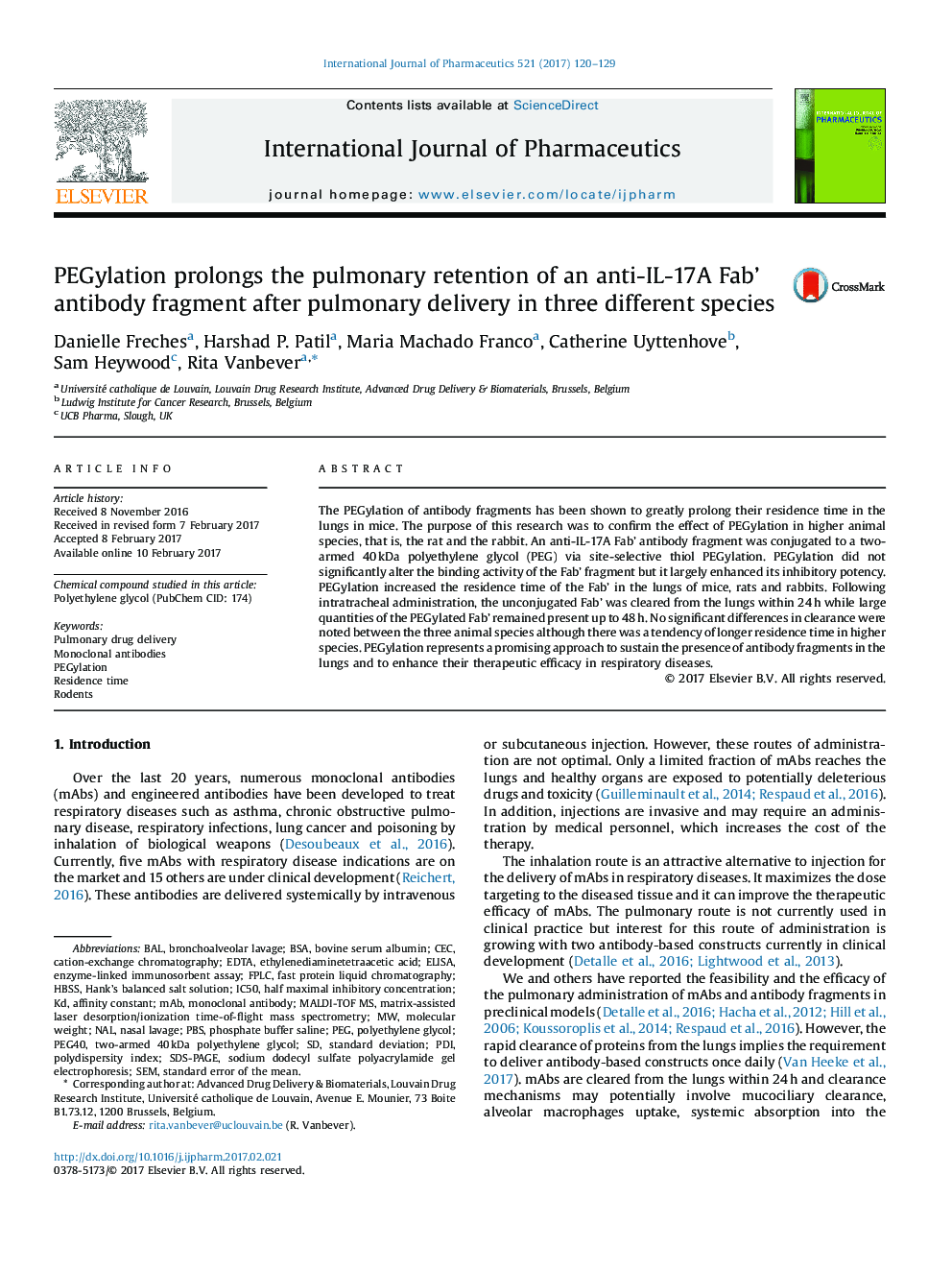| Article ID | Journal | Published Year | Pages | File Type |
|---|---|---|---|---|
| 5550613 | International Journal of Pharmaceutics | 2017 | 10 Pages |
The PEGylation of antibody fragments has been shown to greatly prolong their residence time in the lungs in mice. The purpose of this research was to confirm the effect of PEGylation in higher animal species, that is, the rat and the rabbit. An anti-IL-17A Fab' antibody fragment was conjugated to a two-armed 40Â kDa polyethylene glycol (PEG) via site-selective thiol PEGylation. PEGylation did not significantly alter the binding activity of the Fab' fragment but it largely enhanced its inhibitory potency. PEGylation increased the residence time of the Fab' in the lungs of mice, rats and rabbits. Following intratracheal administration, the unconjugated Fab' was cleared from the lungs within 24Â h while large quantities of the PEGylated Fab' remained present up to 48Â h. No significant differences in clearance were noted between the three animal species although there was a tendency of longer residence time in higher species. PEGylation represents a promising approach to sustain the presence of antibody fragments in the lungs and to enhance their therapeutic efficacy in respiratory diseases.
Graphical abstractDownload high-res image (79KB)Download full-size image
